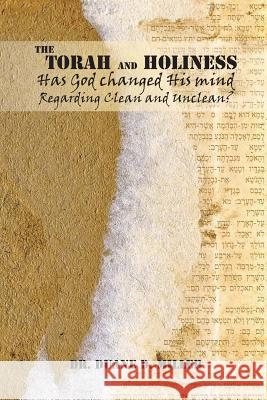The Torah and Holiness » książka
The Torah and Holiness
ISBN-13: 9781494274184 / Angielski / Miękka / 2014 / 128 str.
Question: Are you willing to engage the battle for the truth of the Scriptures or just "go with the flow?" Throughout history, commentators have determined that the moral precepts of the Old Testament - in particular, the Ten Commandments - are binding upon Christians, however the civil and ceremonial laws, from the dietary laws to the moedim (appointed times) are not. For example, New Testament commentaries plainly state that Christians are free to eat pulled pork, shrimp and lobster suggesting that God has changed His mind regarding what is clean and unclean in the Torah. However, is there a more worrisome issue at hand regarding the interpretation of the Scriptures on what is clean and unclean that may effect our understanding and relationship with God? Peter heard a voice from heaven that said, "What God has made clean, you must not call profane." What exactly was the Lord trying to tell Peter in the vision He had given him? Was the vision about food? Did Yeshua or the disciples teach against the Torah? Did the Apostle Paul teach that the inspired Word of God contradicts itself? This book invites the Christian reader to explore the New Testament Scriptures with a new perspective. "The Torah and Holiness" is a call to dedicate our lives to the ancient ways, the eternal truths of the Scriptures that, by His mercy, God has so graciously revealed to us. Jeremiah said ..". look, ask for the ancient paths, ask where the good way is, and walk in it, and you will find rest for your souls..." (Jeremiah 6:16) In this book we examine the English, Greek, and Hebrew texts for a fresh look at what the Scriptures say regarding clean and unclean foods and the spiritual implications.
Zawartość książki może nie spełniać oczekiwań – reklamacje nie obejmują treści, która mogła nie być redakcyjnie ani merytorycznie opracowana.











